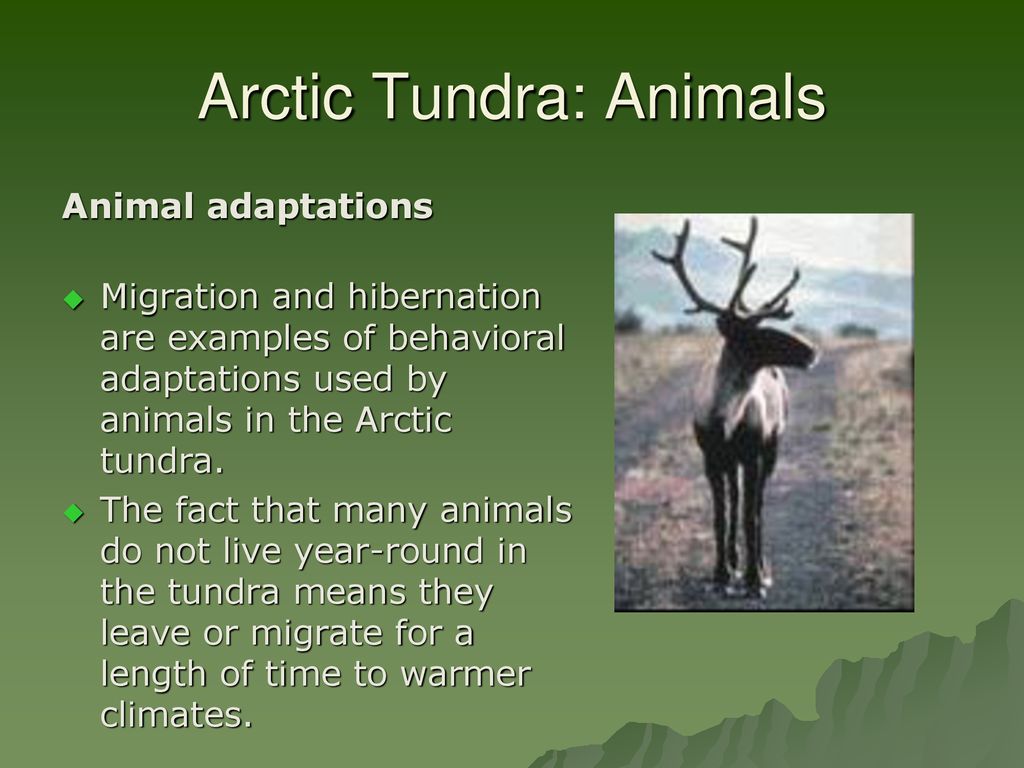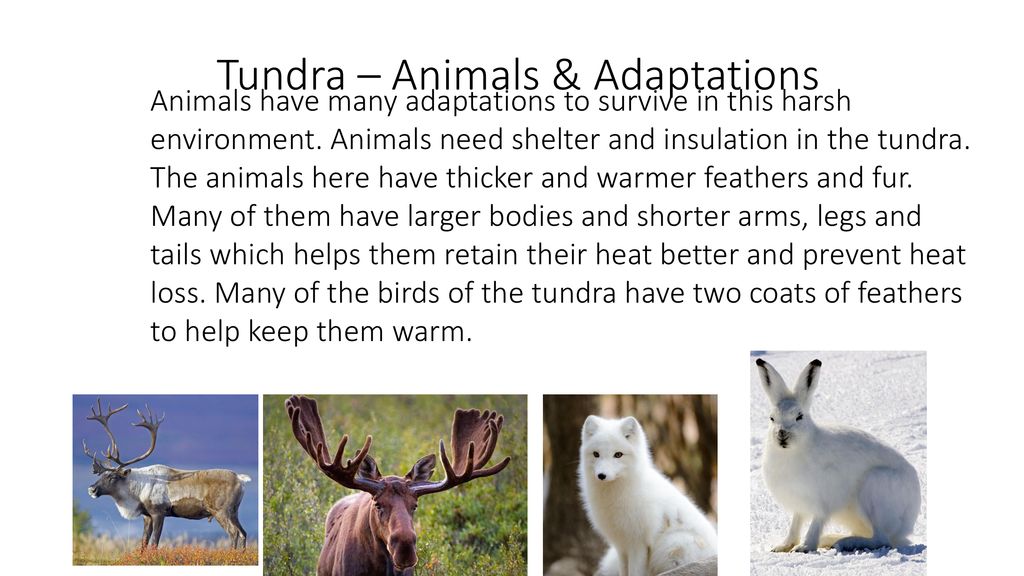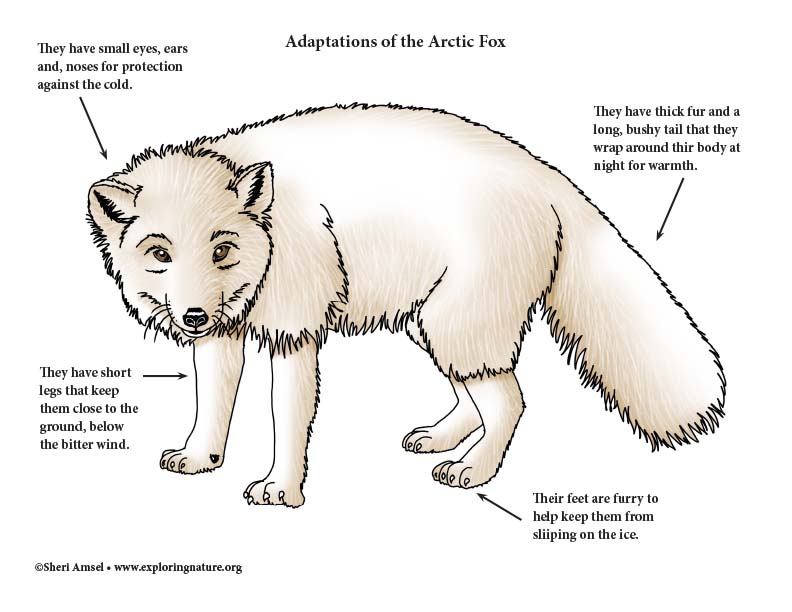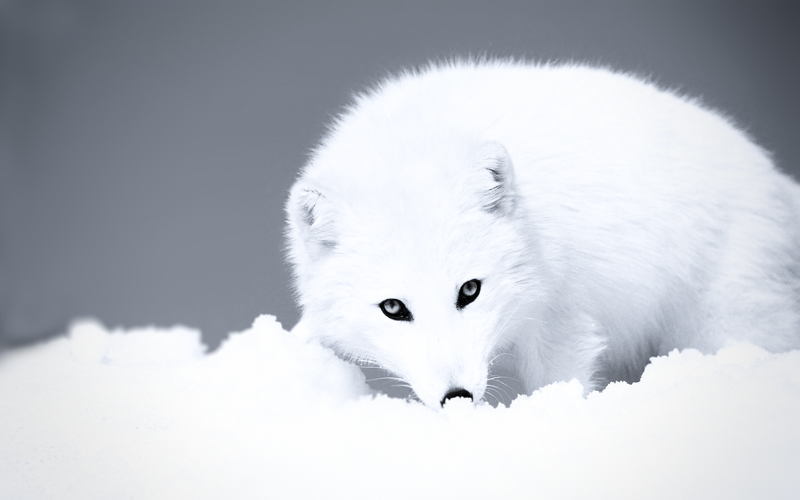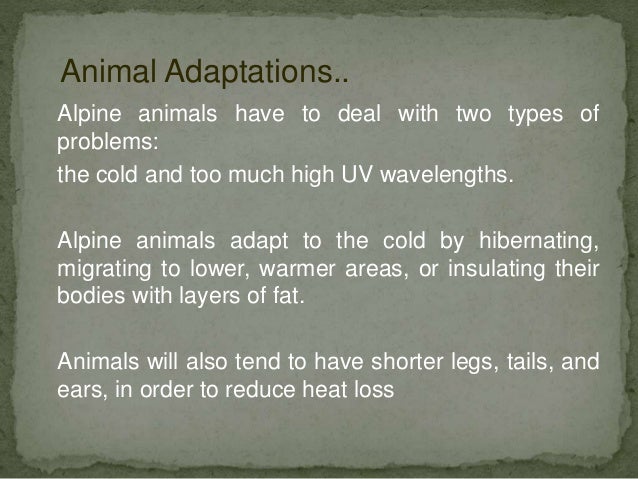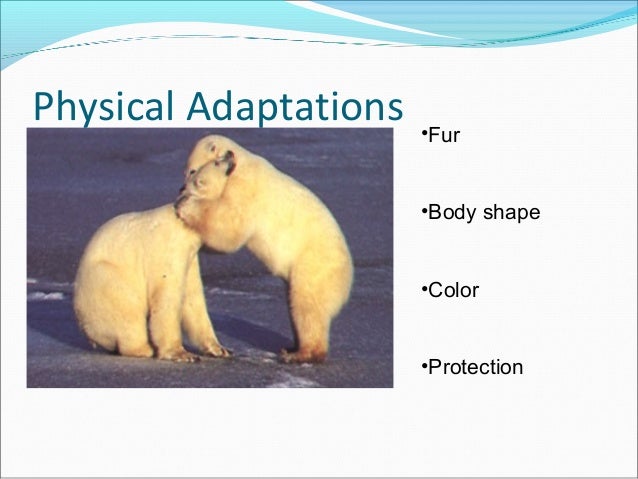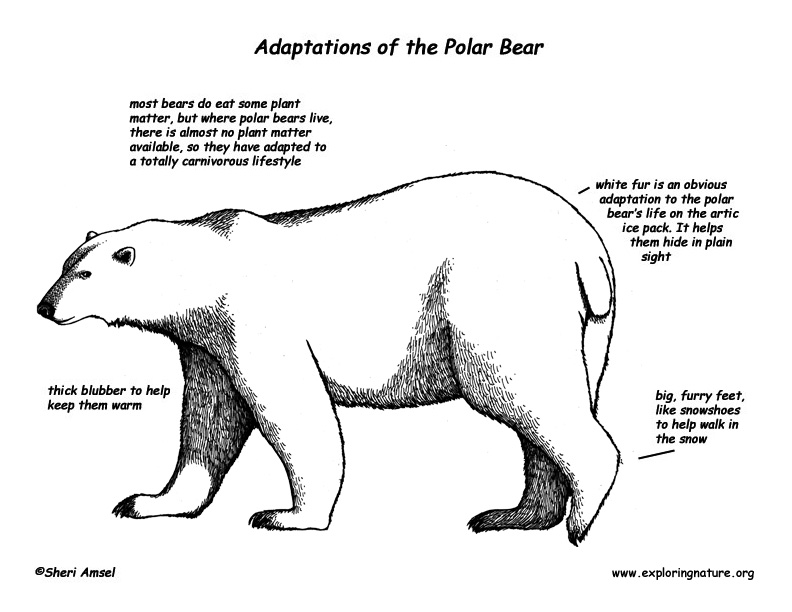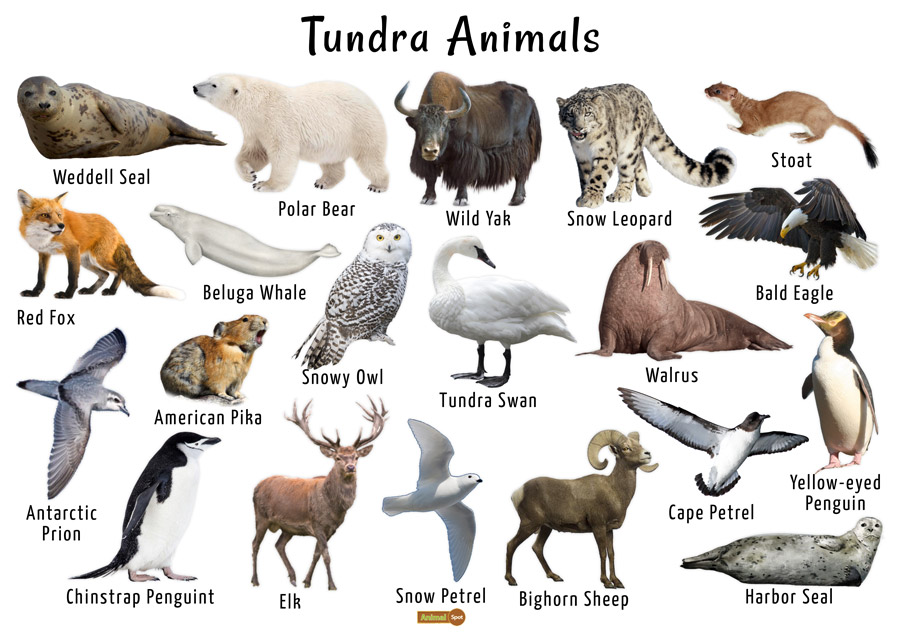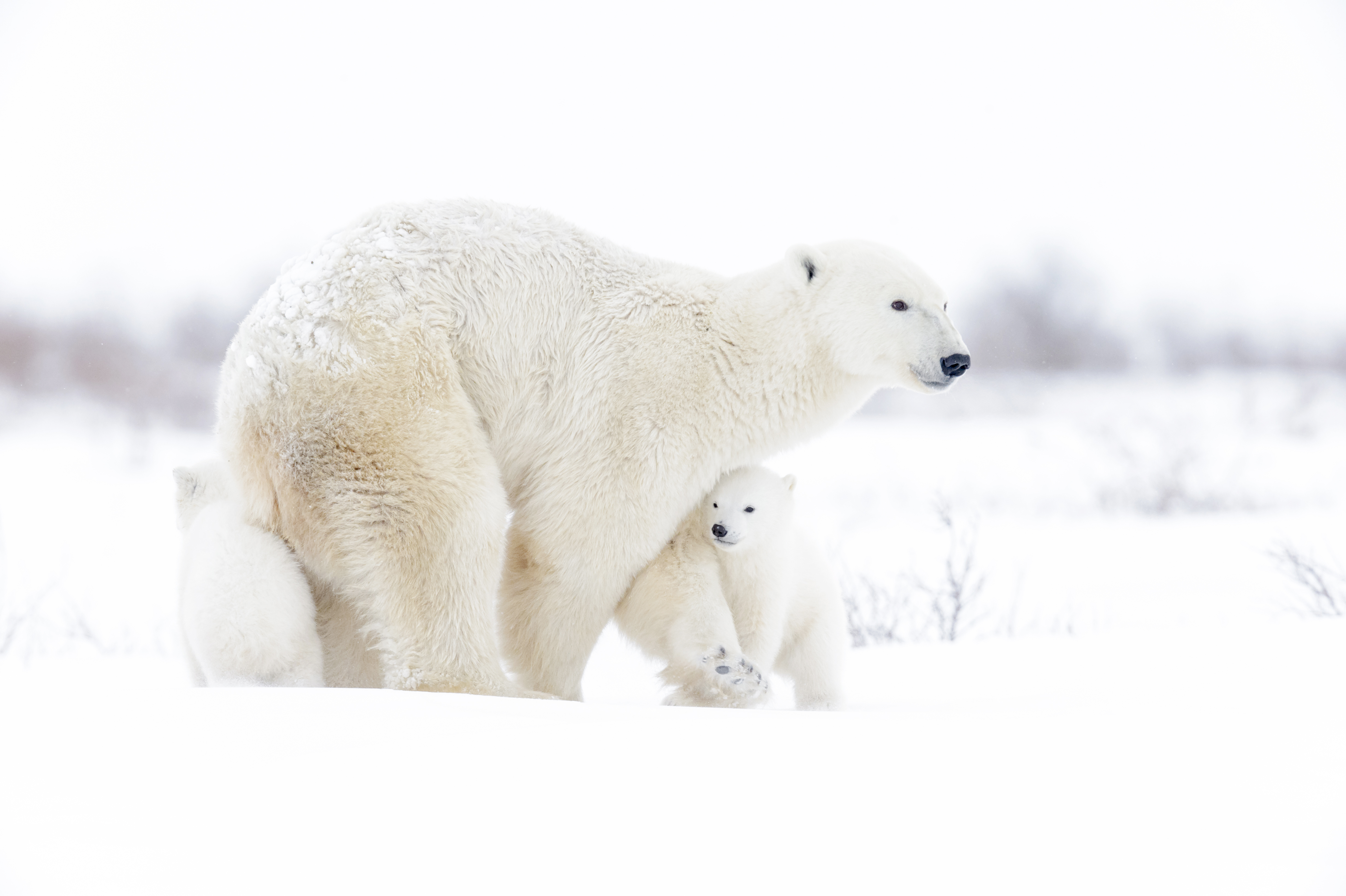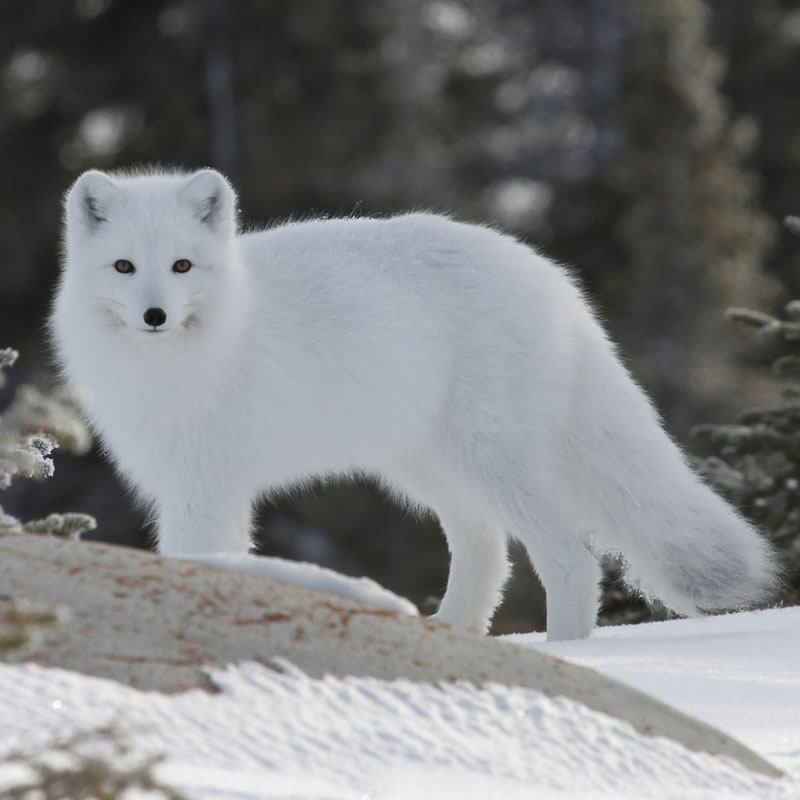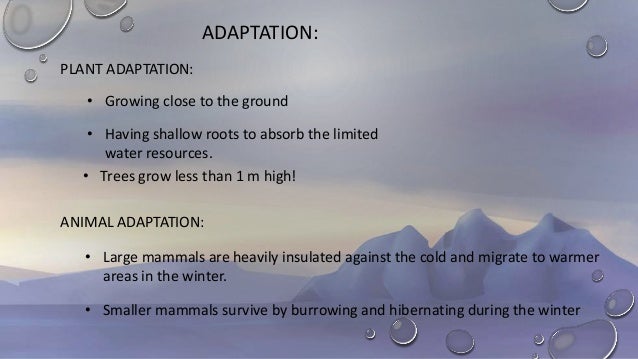Lets look at. Animal adaptations Migration and hibernation are examples of behavioral adaptations used by animals in the Arctic tundra.
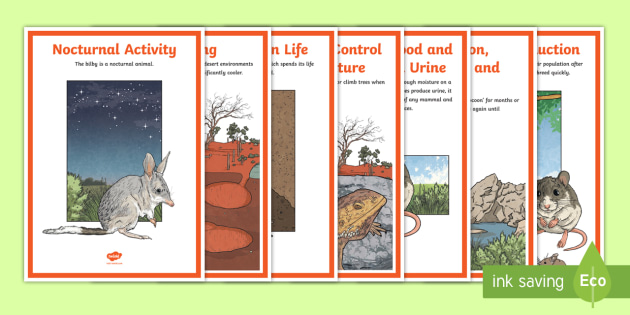
Desert Animals Adaptations Australia Display Posters
Their hair usually shakes free any water or ice from by swimming.
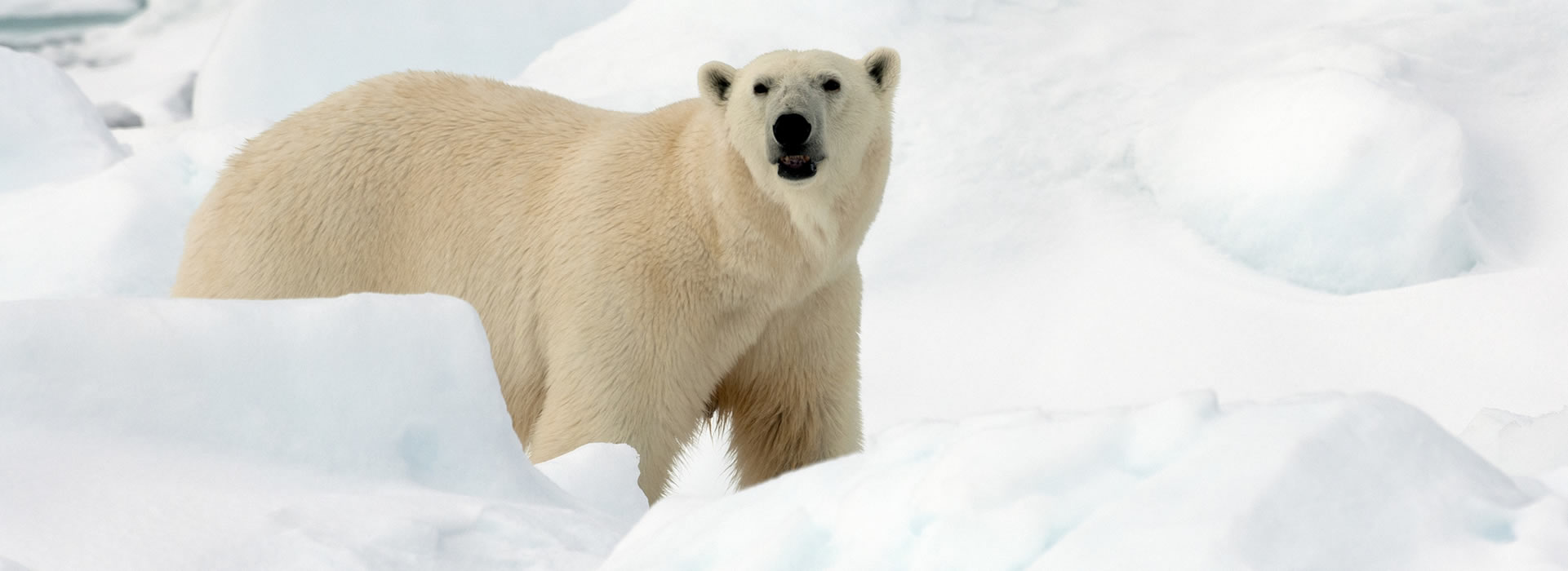
Animal adaptations in the tundra. Hibernation is a combination of. Animal adaptations in the tundra biome. Lemmings Arctic hares and Arctic ground squirrels are a few animals that have adapted to the cold.
The Conservation Institute notes that there are a few common elements that tie many tundra animals together such as heat retention in the body trapped air insulation fat. In Arctic and alpine tundras the number of species of plants and animals is usually small when compared with other regions yet the number of individuals per species is often high. The fact that many animals do not live year-round in the tundra means they leave or migrate for a length of time to warmer climates.
In some places snow insulation is so good that tundra-dwelling lemmings are able to breed in the winter. Migration and hibernation are examples of adaptations used by animals in the Arctic tundra. Then they hibernate or sleep during the Winter.
Those are the areas where the temperatures are extremely low for most of the year the sunlight is also scarce and the soil is hardened due to permafrost. Examples of Structural adaptations of animals in the Arctic Tundra include. Examples of physical adaptations the thickness of an animals fur helps them to survive in cold environments.
The coldest areas on Earth such as regions close to the North Pole and the South Pole have unique features. Both of these are in short supply in the tundra so plants have made adaptations to survive. Its still cold just not as cold as the winter months.
The Polar bear are the most recognised animal of the Tundra. Mosquitoes Aedes nigripes for example have a chemical compound that acts as antifreeze lowering the freezing temperature in their bodily fluids. Tundra plant and animal adaptations.
A white appearance - as camouflage from prey on the snow and ice thick layers of fat and fur - for insulation against the cold a small surface area to volume ratio - to minimise heat loss a greasy coat that sheds water after swimming - to help reduce heat loss large feet -. Animals of the Arctic tundra have adapted to survive frigid conditions according to the Conservation Institute. During the summer brown bears behavior is to eat about anything they can find.
Instead they rely on the snow layer to insulate their tunnels and nests. Believe it or not there is a summer season in the tundra. So animals like brown.
Tundra Animal Adaptations. They have long stiff hair in between their feet that provide them traction. They have long stiff hair in between their feet that provide them traction.
Animals that live in the tundra have special adaptations that allow them to survive the extreme temperatures and conditions that are present in a tundra. This fur is shed during summer to prevent overheating and is thicker during winter to provide the most warmth possible. It is also physical adaptations.
An adaptation is a change that enables a living organism to survive in an environment. Although this section focuses on plants and animals the tundra also hosts abundant bacteria and fungi which are essential to proper ecosystem functioning in Tundra - Tundra - The biota and its adaptations. Camels long leg eyelids hump are all examples of adaptation.
Here are a few adaptations that make them suitable to this biome. Fur - Most animals have thick layers of dense fur that protects them from the cold as well as providing warmth by trapping solar heat in the hair. Some of the most prominent animal adaptations that tundra animals sport include the presence of thick fur and rich deposits of fat to help them survive the freezing cold small ears to minimize heat loss small bodies to ensure minimal exposure to frigid air and broad feet to make it easier for them to walk on snow.
Though the tundra is remote it is increasingly threatened as people encroach on it to build or drill for oil for example. This is the short period of time when plants will grow. This also protects their feet from the cold.
The shape of a birds beak helps them to eat food as well as make nests. Small mammals such as tundra voles lemmings ermine and shrews cant hibernate. Tundra insects have also developed adaptations for the cold.
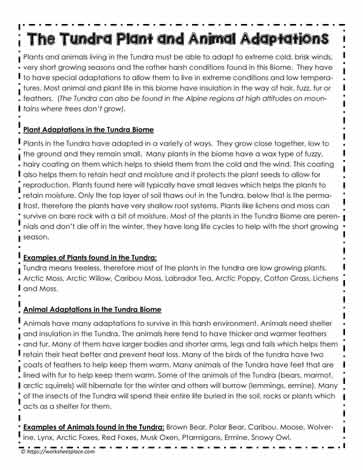
Tundra Plant And Animal Adaptations Worksheets

What Are Some Adaptations Of Animals In The Tundra
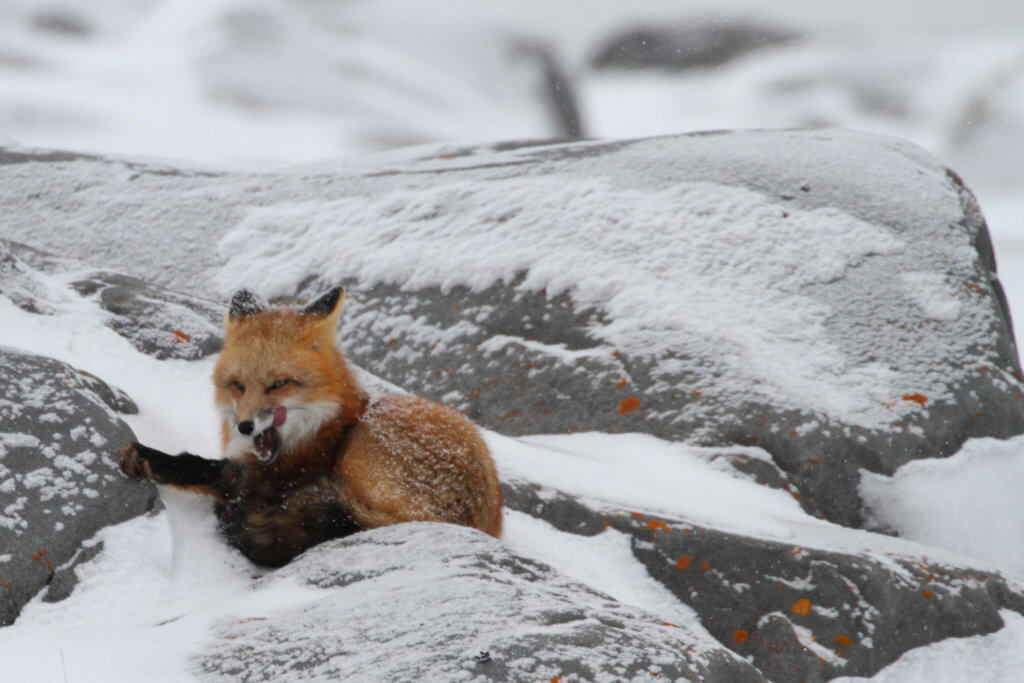
The Wonders Of Winter Adaptation Montana Natural History Center
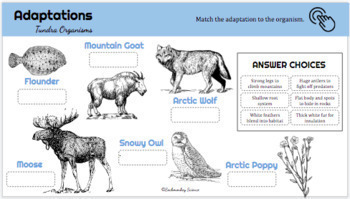
Animal Adaptations Distance Learning Digital Animal Research And Report Tundra

Tundra Worksheetsworksheets Adaptations Science Teaching Ecosystems Biomes Activities

Tundra Biome Characteristics Animal And Plant Adaptations Tpt

Ppt Biomes Of The World Powerpoint Presentation Free Download Id 1551768
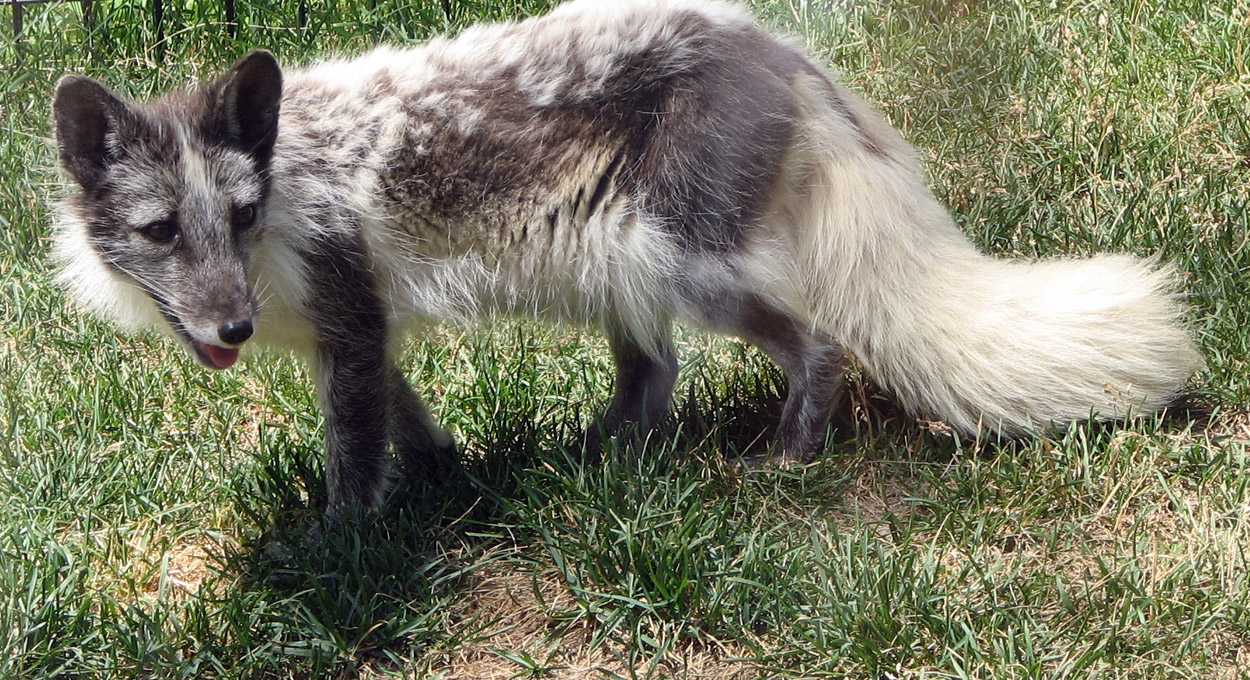
Arctic Fox Facts And Adaptations Vulpes Lagopus Alopex Lagopus

What Are Some Adaptations Of Animals In The Tundra Cute766
Https Encrypted Tbn0 Gstatic Com Images Q Tbn And9gcswadfygfjotjhjmxtmg06mux2mesak Yg3nnnw7jgzhojlsxfz Usqp Cau
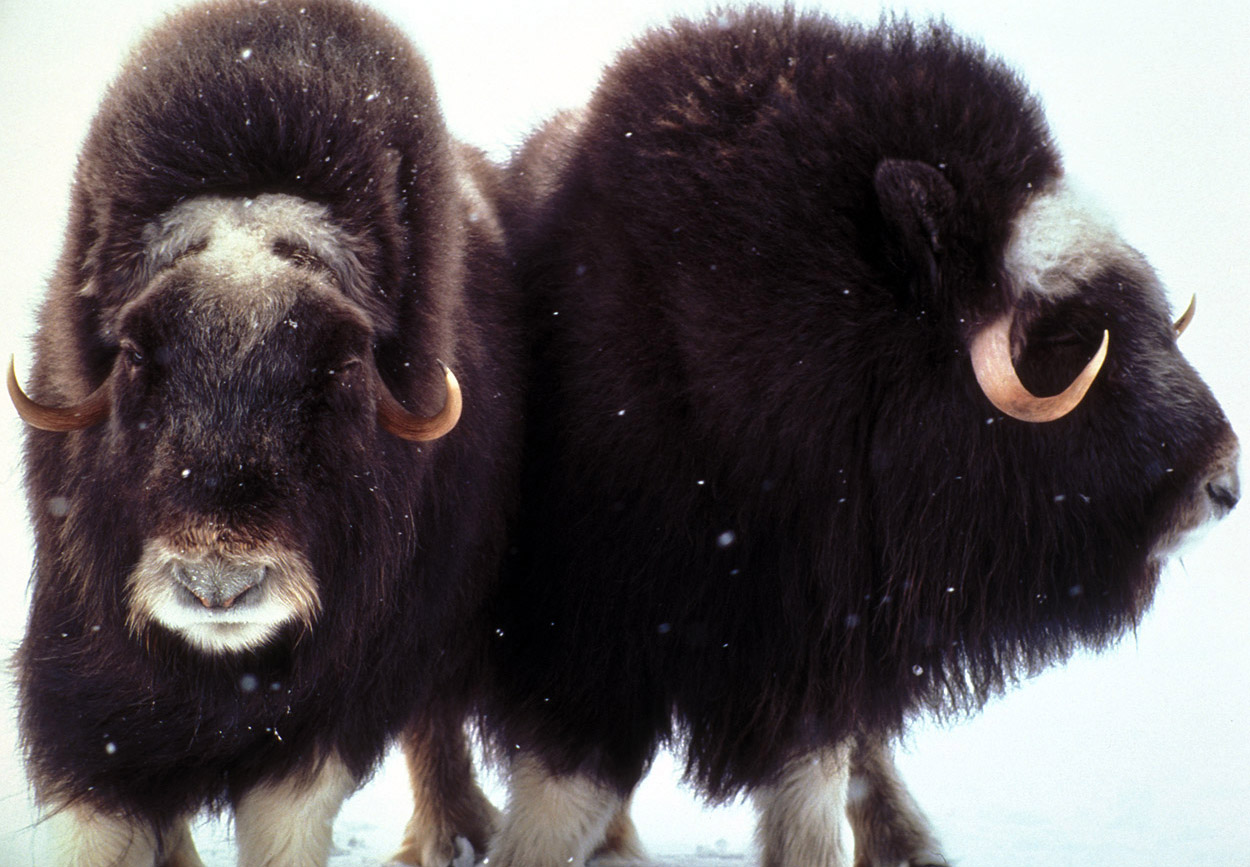
Musk Ox Facts And Adaptations Ovibos Moschatus

Frozen Arctic And Tundra Habitats Plant And Animal Adaptations Pdf Presentation

Ta L 30 Animal Adaptations Talk About Texts Torrance C 9781420241457 Amazon Com Books
Arctic Hare Adaptations For Survival In The Far North
How Animals Fight Global Warming
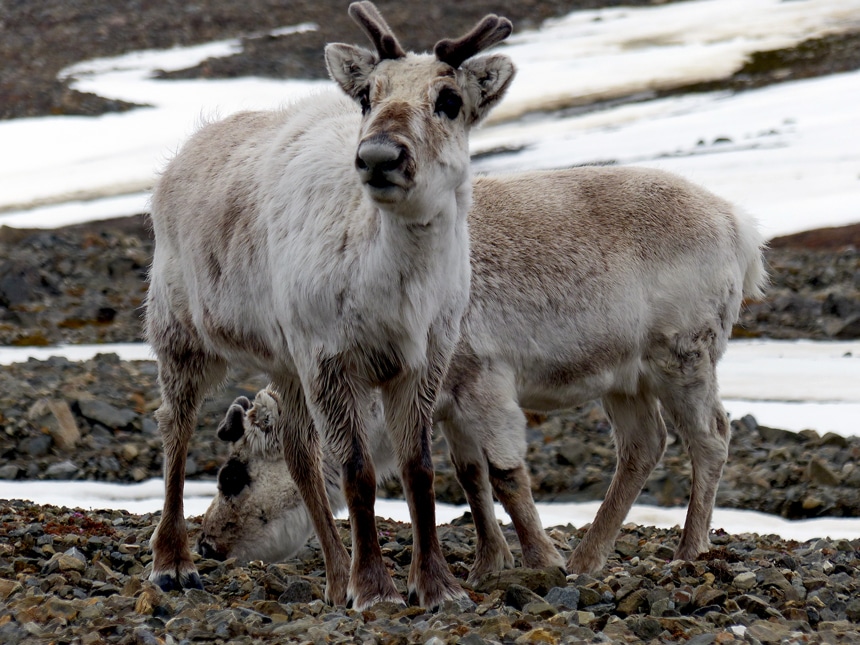
Arctic Animals Spotting Tips Facts Adventuresmith Explorations

Tundra Plant And Animal Adaptations Youtube

Unit 10 Plant And Animal Adaptations Goal I
Arctic Animals Adaptations For Survival On The Arctic Tundra And In The Arctic Seas
Animal Adaptations For Winter Msu Extension

Polar Animal Adaptations Amazing Animal Adaptations Amstutz Lisa J 9781429670319 Amazon Com Books

The Tundra Biome Nature Curriculum In Cards Montessori

Tundra Plant And Animal Adaptations Cute766
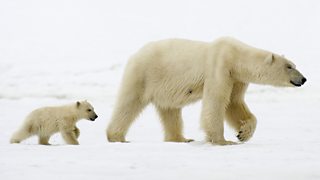
Animal Adaptation To The Tundra Climage Tundra Regions Of The World 3rd Level Geography Revision Bbc Bitesize

How Plants And Animals Adapt To The Tundra
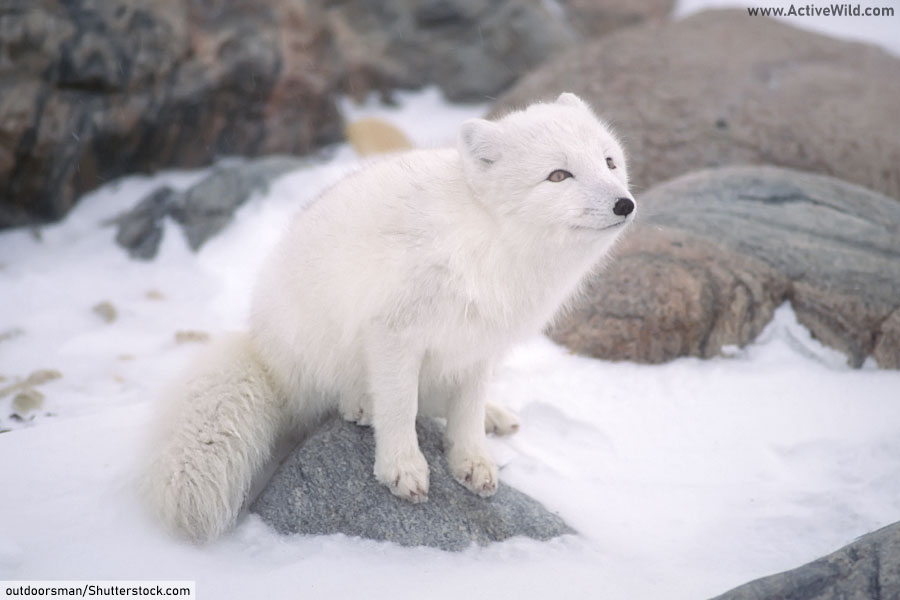
The Tundra Biome Facts Pictures Information A Land Of Frozen Beauty

Adaptations To Cold Environments

Alaskan Animal Adaptations Bering Land Bridge National Preserve U S National Park Service

Arctic Animals Of The Tundra Animal Adaptations Arctic Animals Animals
Plant Adaptations In The Tundra

The Tundras Animals Biome Cold Dry Ecology Ecosystems En Plants Science Tundra Glogster Edu Interactive Multimedia Posters
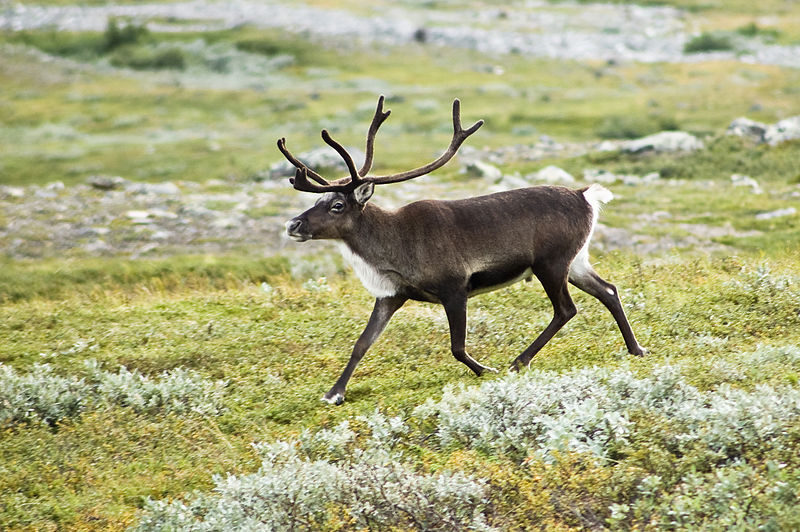
Animals Of The Tundra Ask A Biologist

Arctic Fox National Geographic

Tundra Animal Adaptations Interactive Notebook Google Slides Distance Learning
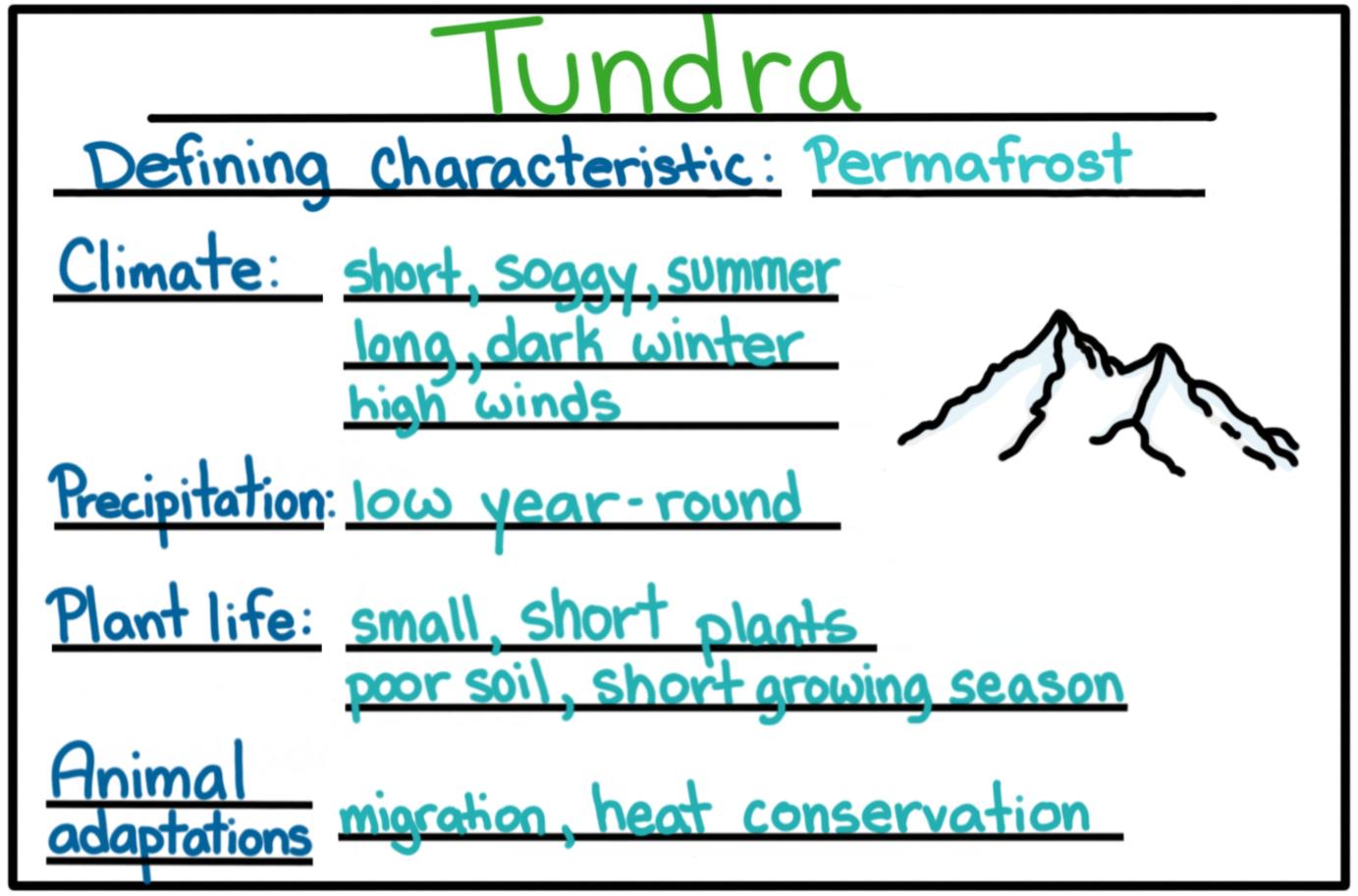
Polar Biomes Tundra Taiga Expii
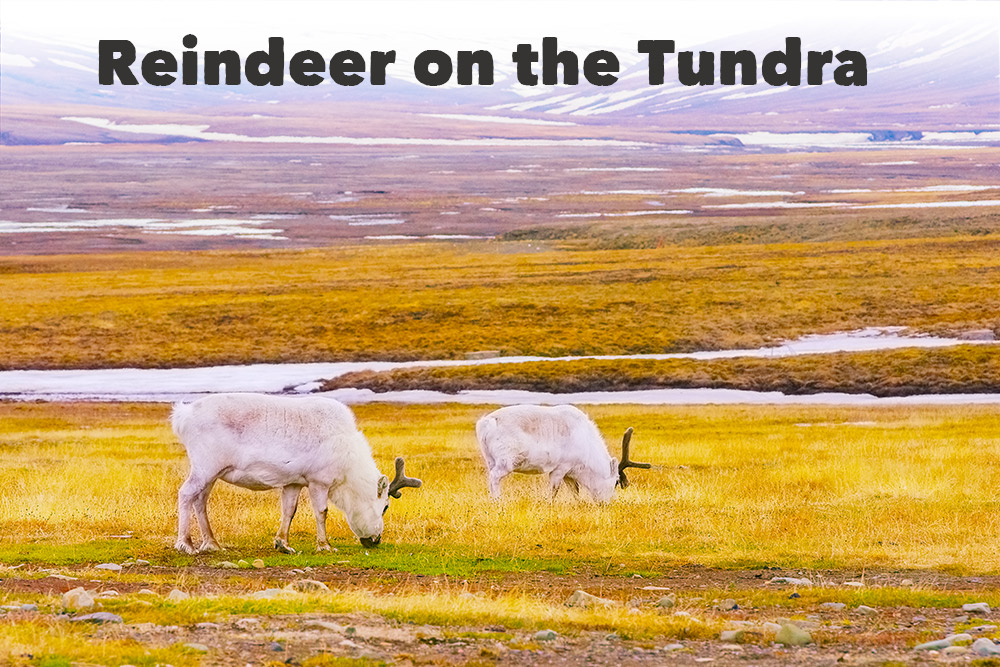
Arctic Tundra World Biomes The Wild Classroom
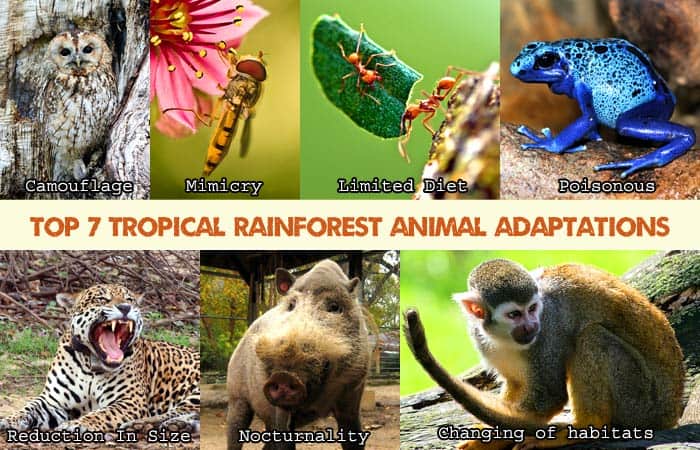
Top 7 Tropical Rainforest Animal Adaptations Biology Explorer

World Biomes Follow Along With Your Biome Journal
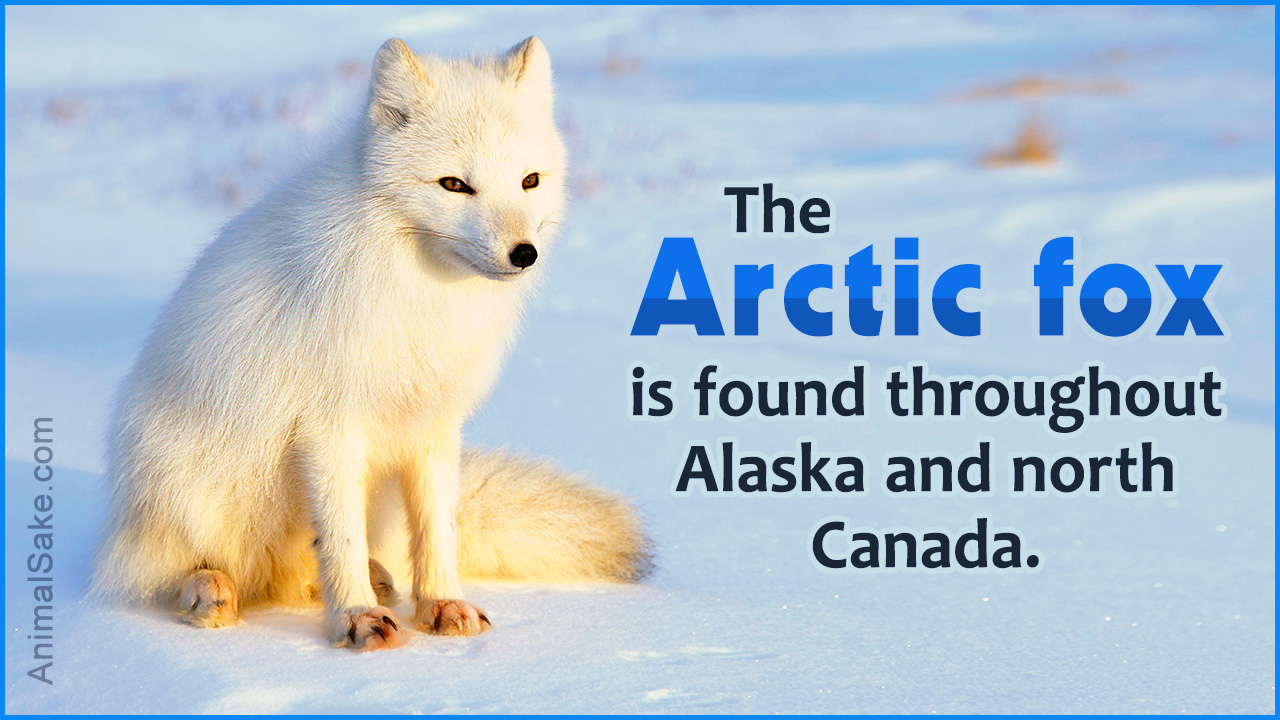
Arctic Fox Adaptations Animal Sake
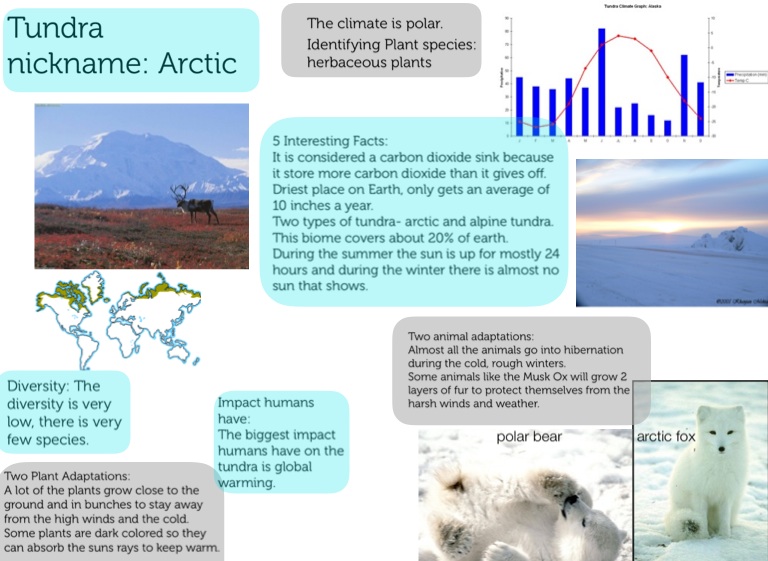
Brayley Tundra On Flowvella Presentation Software For Mac Ipad And Iphone
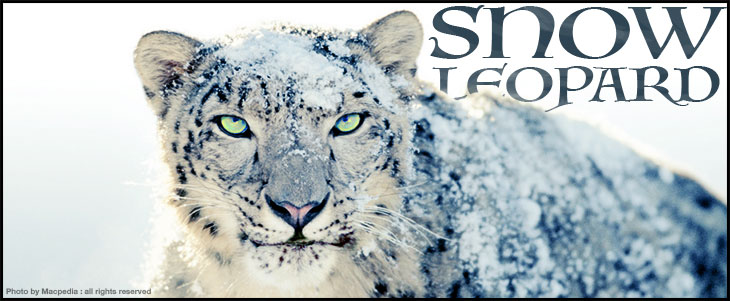
Alpine Tundra Biome Untamed Science

Arctic Adaptations National Geographic Society

Feed Image Classroom Fun Arctic Animals Animal Adaptations

Tundra The Biota And Its Adaptations Britannica

Animal Adaptations Matching Activity Teaching Ideas
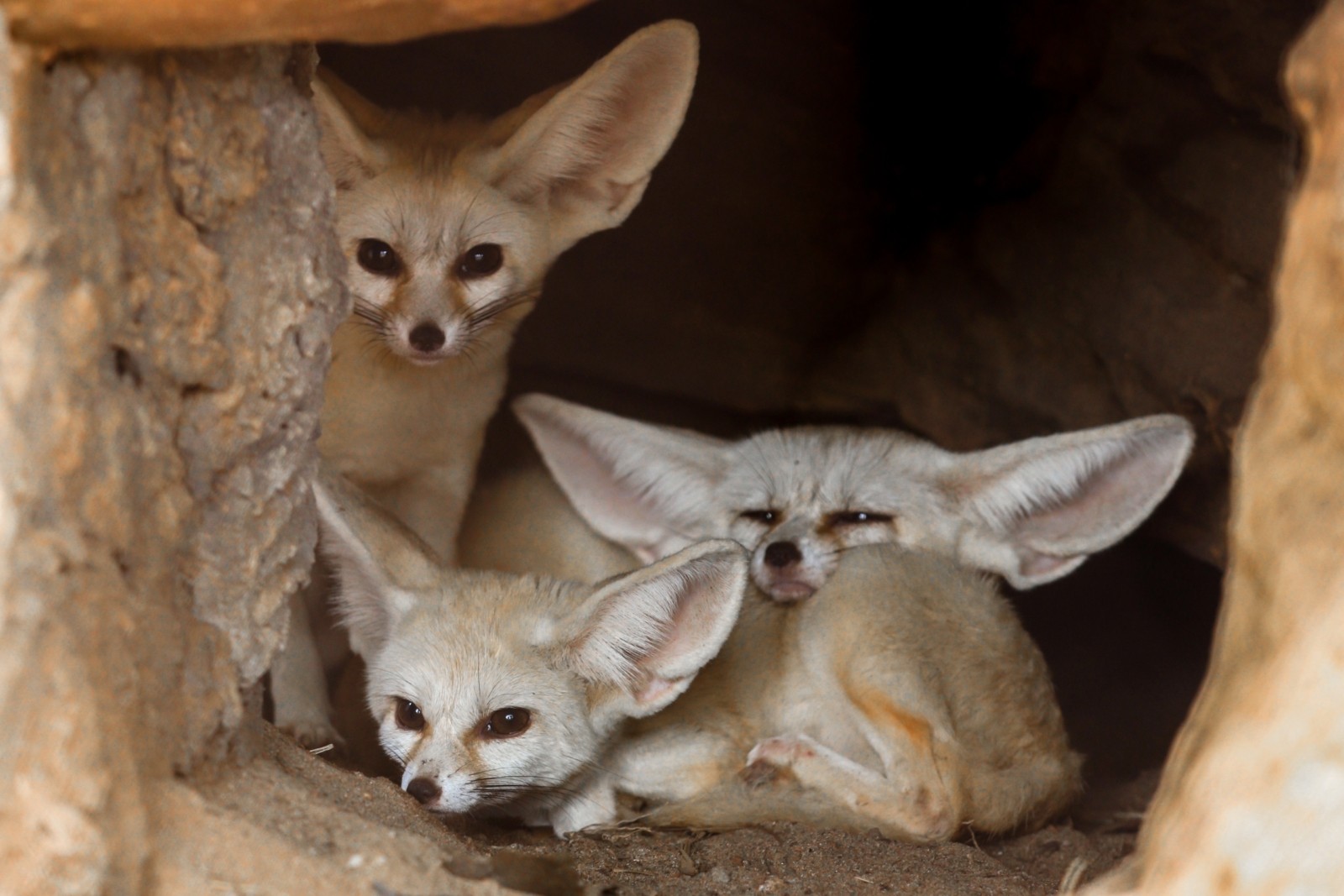
How Have Animals Adapted To The Desert Internet Geography
Caribou Adaptations In The Tundra Animals Mom Com
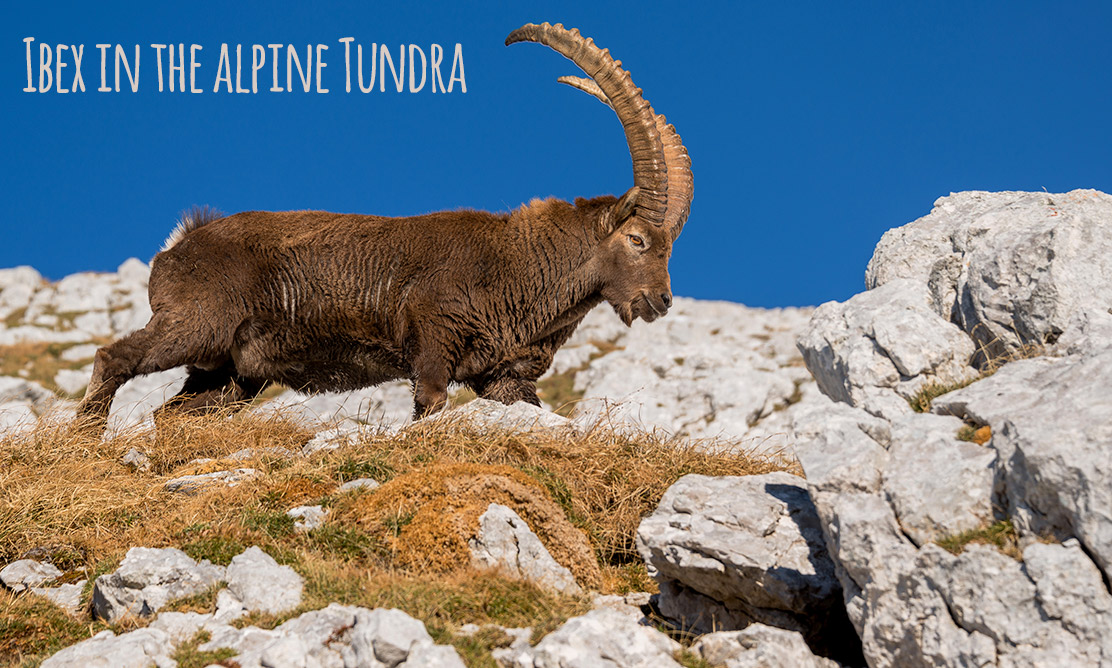
Alpine Tundra World Biomes The Wild Classroom
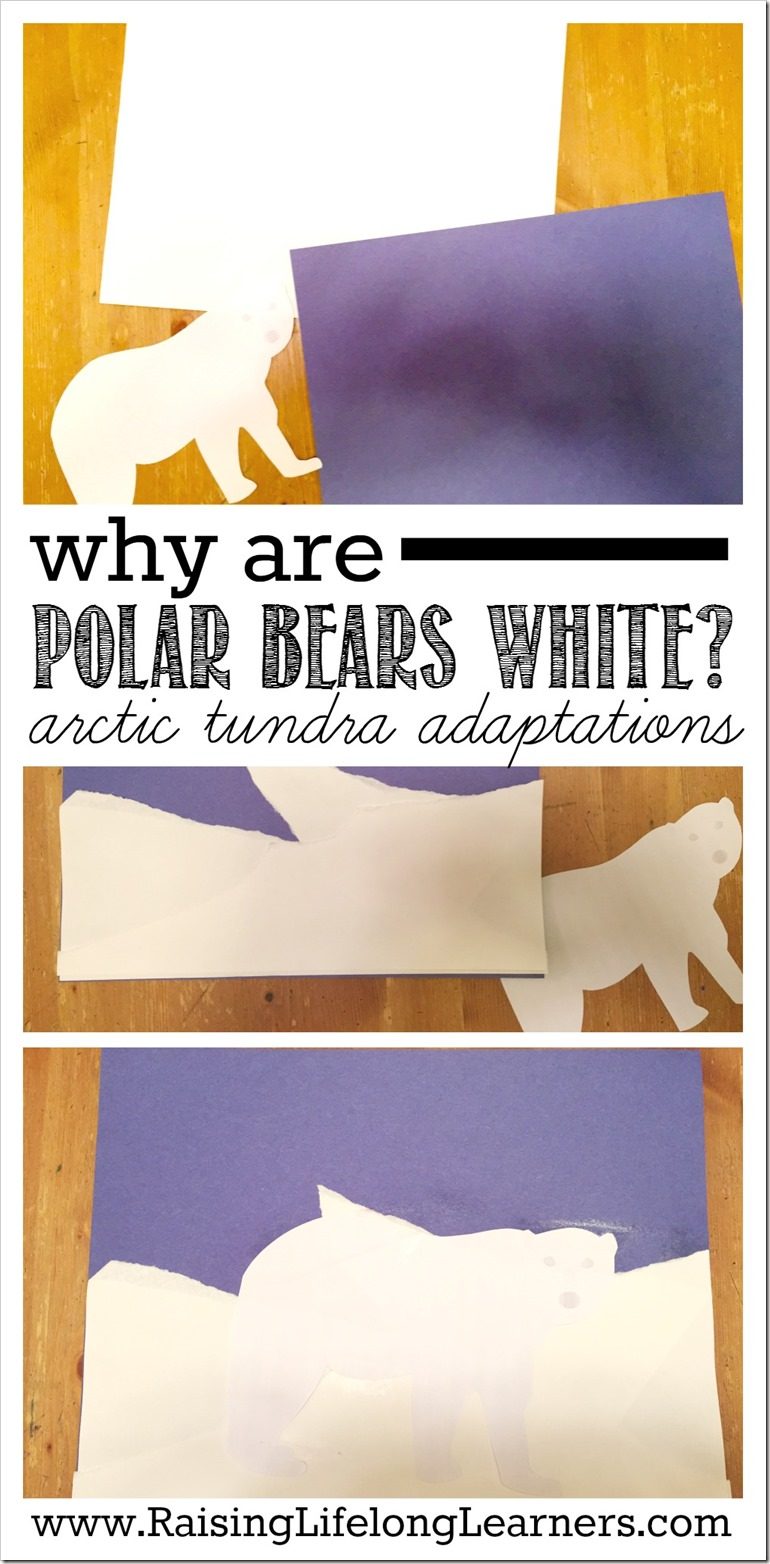
Why Are Polar Bears White Arctic Tundra Animals

Tundra Animal Adaptations Lesson For Kids Study Com
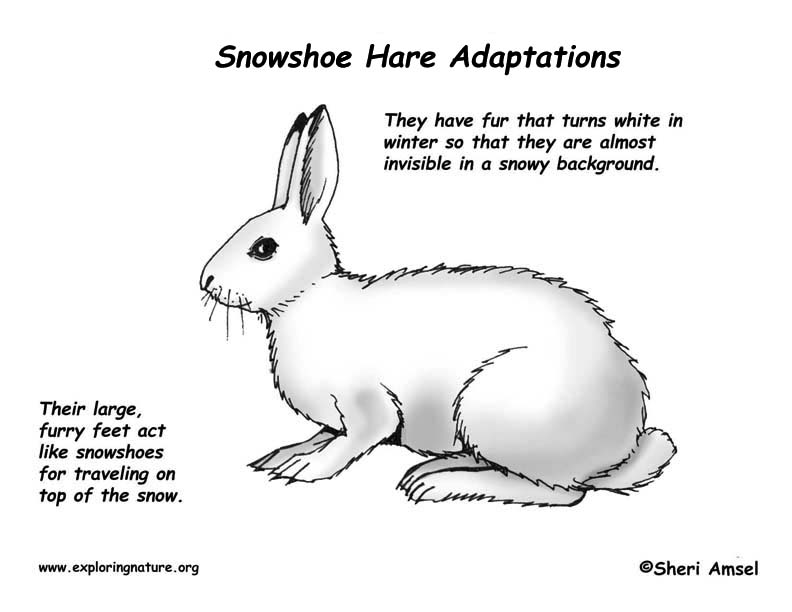
Adaptations Of The Snowshoe Hare

What Animals Live In The Tundra And What Are Their Adaptations
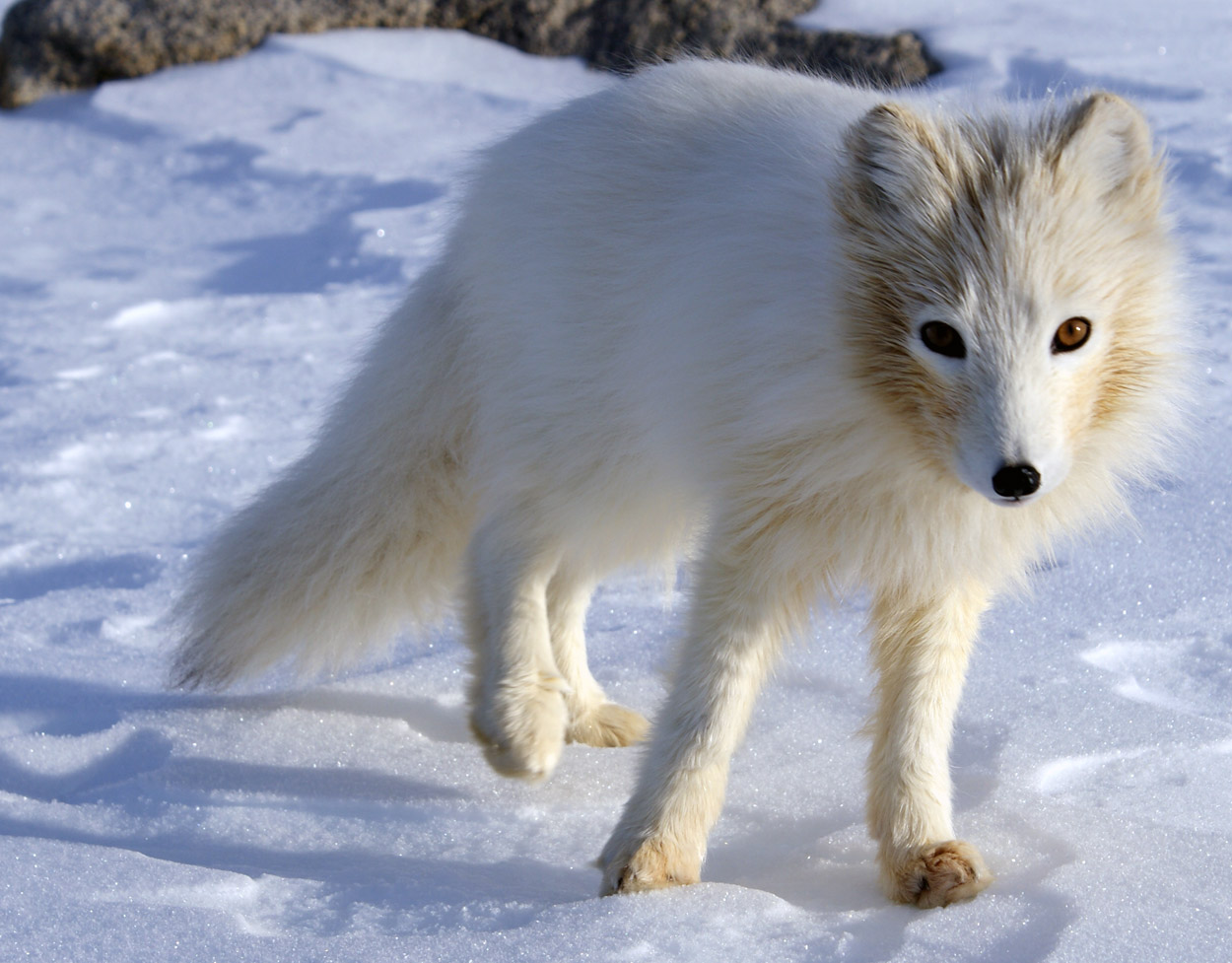
Arctic Fox Facts And Adaptations Vulpes Lagopus Alopex Lagopus

Common Animals Found In The Tundra Lovetoknow

Arctic Foxes Of The Tundra Animals Of The Tundra Jeffries Joyce 9781534522275 Amazon Com Books

The Best Middle School Animal Adaptations Project

Animals And Frozen Ground National Snow And Ice Data Center

Jared B Caroline R Lauren B Jared F Location Jared Beck Climate Jared Beck Plants And Adaptations Lauren Brown Animals And Adaptation Caroline Ppt Download

Arctic Animals Showing Climate Adaptation But It May Be Causing Declines Study Cp24 Com
Tundra Ecology Alaska Department Of Fish And Game
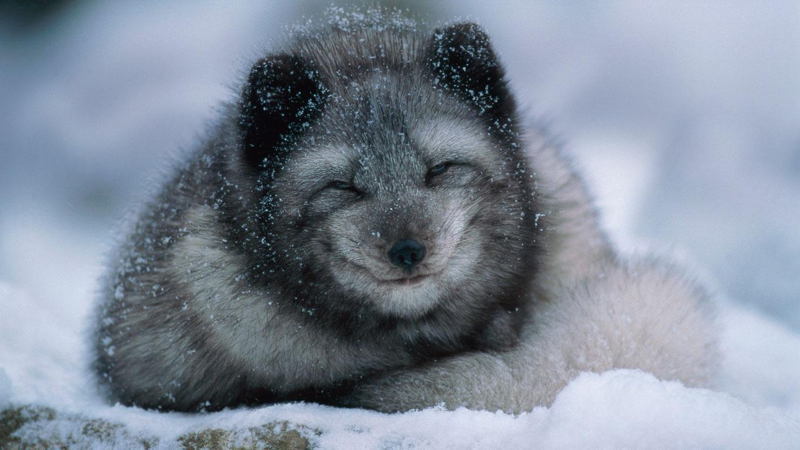
Surviving Winter In The Arctic Animal Adaptations
How Do Plants Animals Survive In The Arctic Tundra
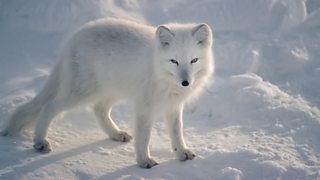
Animal Adaptation To The Tundra Climage Tundra Regions Of The World 3rd Level Geography Revision Bbc Bitesize

Land Biomes Apes Lchs Dr E Introduction Biomes
How Polar Bears Have Adapted To Their Environment
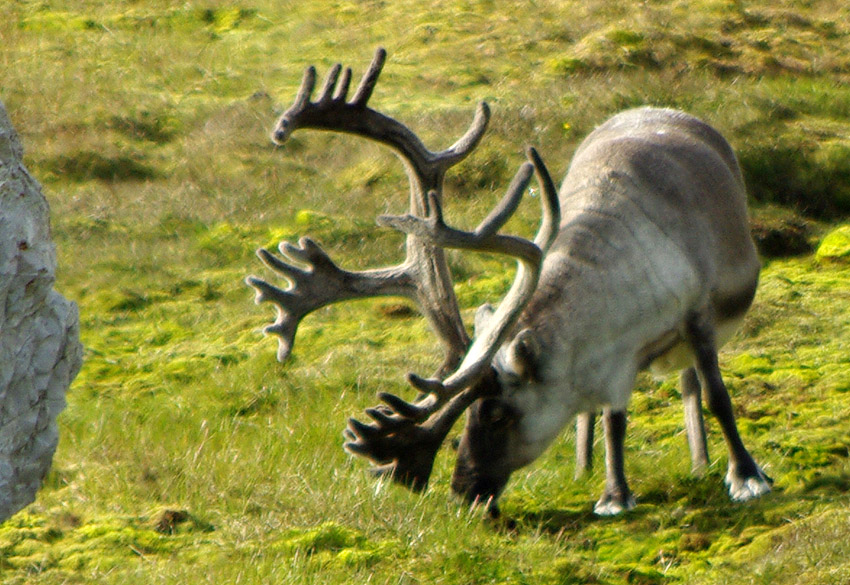
Reindeer Of The Arctic Facts And Adaptations Rangifer Tarandus Also Called Caribou
How Do Arctic Animals Survive In The Cold Wonderopolis
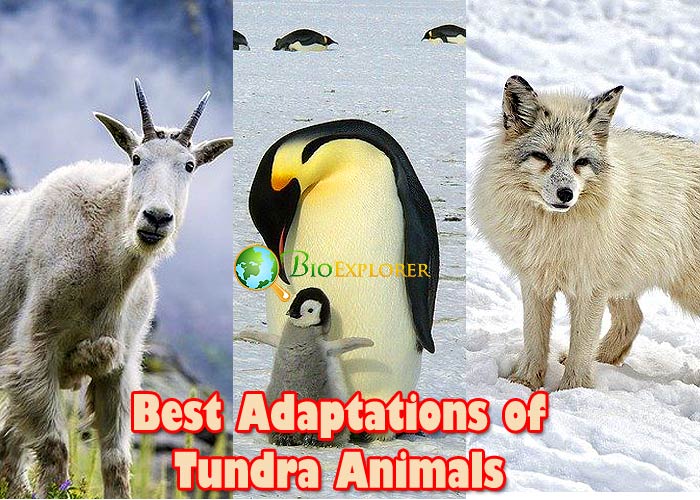
Top 18 Best Tundra Animal Adaptations Bioexplorer Net
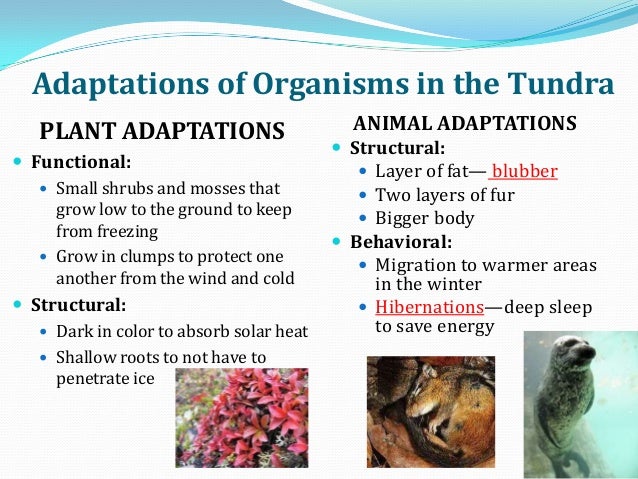
Adaptations In Different Biomes Notes
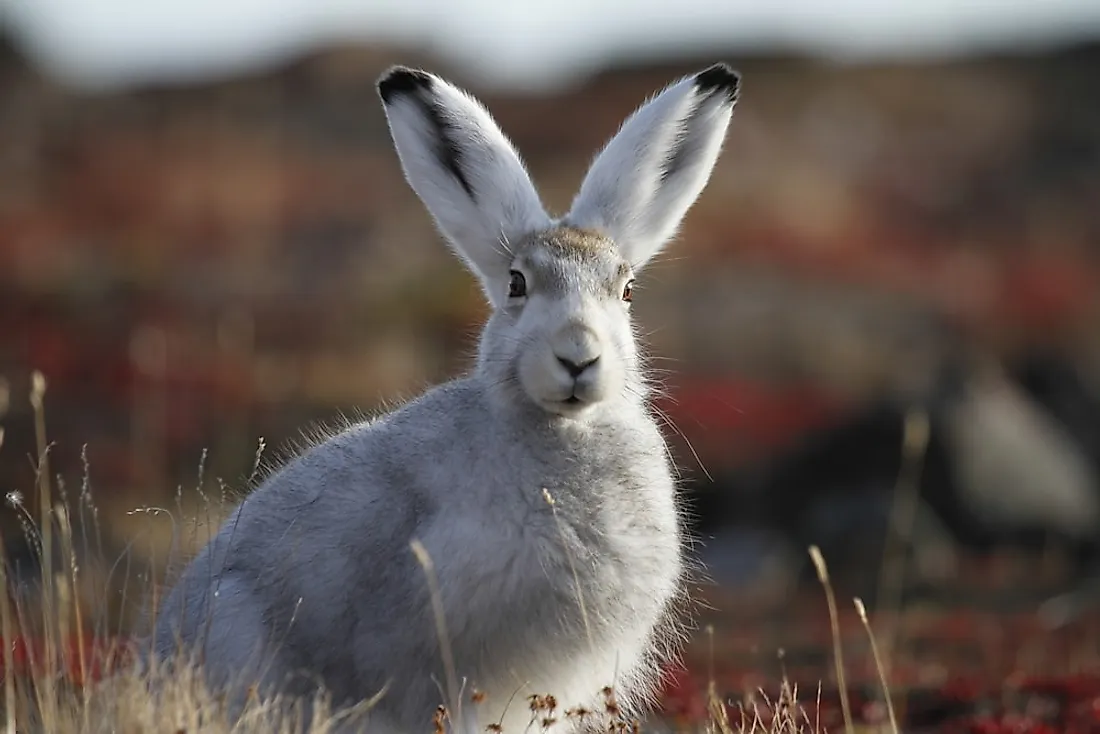
Animals That Live In The Tundra Worldatlas
